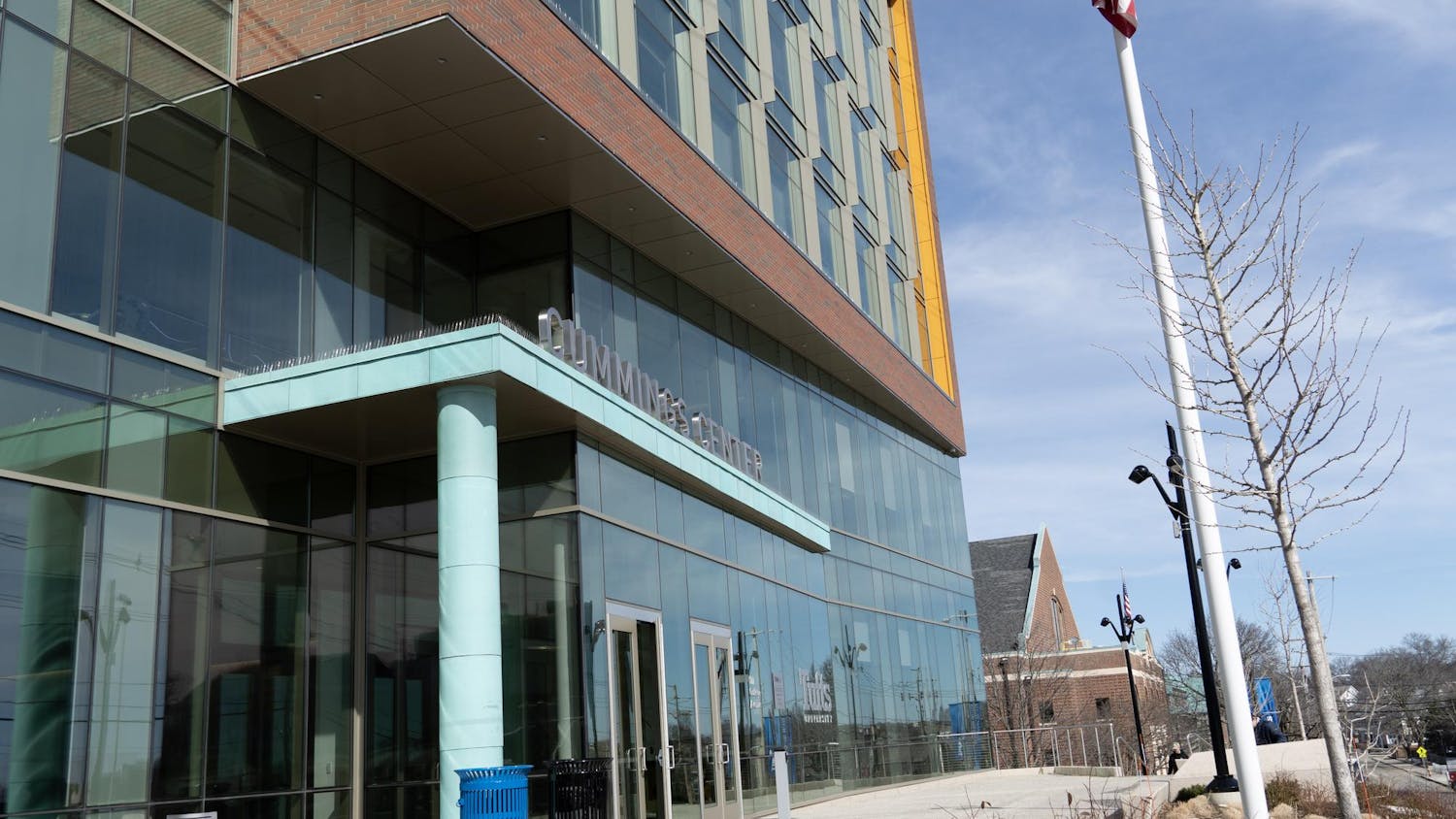The first Gen Z member of Congress, Florida Rep. Maxwell Frost, visited the Jonathan M. Tisch College of Civic Life during a Solomont Speaker Series conversation on Oct. 30. The conversation, moderated by Tufts ACTION President Alison Cedarbaum, covered topics including gun legislation, the future of Congress and voter registration.
A survivor of gun violence himself, Frost found his call to action for gun control while attending a vigil for the 2012 Sandy Hook school shooting. Since the age of 15, he has led programs and campaigns at organizations including the American Civil Liberties Union and March For Our Lives, before running for Congress in 2022.
Frost gave advice on how he believes student organizers and activists can make their voices heard and issues clear.
“The top thing we can do right now is work with each other to build political power,” Frost said. “When an issue comes up and you have hundreds, if not thousands, of people writing into your office or calling or protesting … [create] that sort of pressure.”
However, he noted that preparing infrastructure for action is also key to successful organizing.
“As young people, we need to focus on finding a political home and then working in that political home year-round,” Frost said. “The true testament of our strength as organizers isn’t when there’s been a mass shooting and everybody cares and the news is talking about it, it’s when no one cares. It’s when it’s not in the news.”
He added that each part of a political movement — be it voting or protesting — is equally important, and that advocacy looks different for everyone.
“We need all of it. All of it. We can’t afford to throw any part of our movement out,” Frost said. “Be open to different forms of advocacy and let people really do what makes them unique.”
Frost emphasized the importance of long-term planning, using his protesting after the murder of George Floyd in 2020 as an example.
“We went out and we started protesting, and then a few weeks into our protesting, we started to ask, ‘what’s next?’” Frost said. “‘What are we going to do after this?’ Those conversations and what came after that are powerful.”
Frost also pointed out the need to strategize in order to make the most of a political movement.
“Figuring out how to utilize this movement and show our political power at the ballot box, but also at offices and lobbying meetings, and also planning more events and getting more people to be involved in what we’re doing,” Frost said. “Using every part of that is really important. … We’ve got to use all of it.”
Audience members then turned the conversation to the future of Congress, with Frost commenting on the body’s makeup and decision-making abilities.
“Over the next probably 10 years, we’ll see the most open seats that we’ve seen in a while in these elections,” Frost said. “Because most of Congress is very old, there comes a short period of time where many of those people will not be in their seats anymore. … Because of that, there will be a lot more open seats, and there will be more opportunity for young people.”
Despite being the youngest member of the U.S. Congress, Frost elaborated on the importance of accurate generational representation.
“I don’t think that all of Congress should be all Gen Z,” Frost said. “It’s a representative body that needs to represent the country. … My mom just retired from 37 years as a public school educator. … I would love someone like my mom to represent me. It’s not just about old versus young, but it’s about new people that could be helpful.”
Later, Frost shared his insights on voter registration processes.
“This effort to institutionalize the process, that is what I’m focused on,” he said.
He acknowledged that while efforts like tabling booths at lunchtime and concerts are important, there also exists plenty of “low-hanging fruit, where we can work with our institutions to ensure it’s part of the process to register to vote, and it’s not an extracurricular.”
As an example of this institutionalization, Frost is currently working to make voter registration required to enroll in the Orange County school district. According to Frost, most colleges do not incorporate voter registration into their registration.
“That’s really the big key here. We need to make sure [registration] is part of the process,” he said. “Automatic voter registration should just be part of life.”
To boost political engagement, Frost believes the voting age should be lowered to 16.
“I believe that young people deserve a voice in legislation,” he said. “I think it’s going to fundamentally change turnout for young people. … Let’s get this [voting] habit into people when they’re young.”






